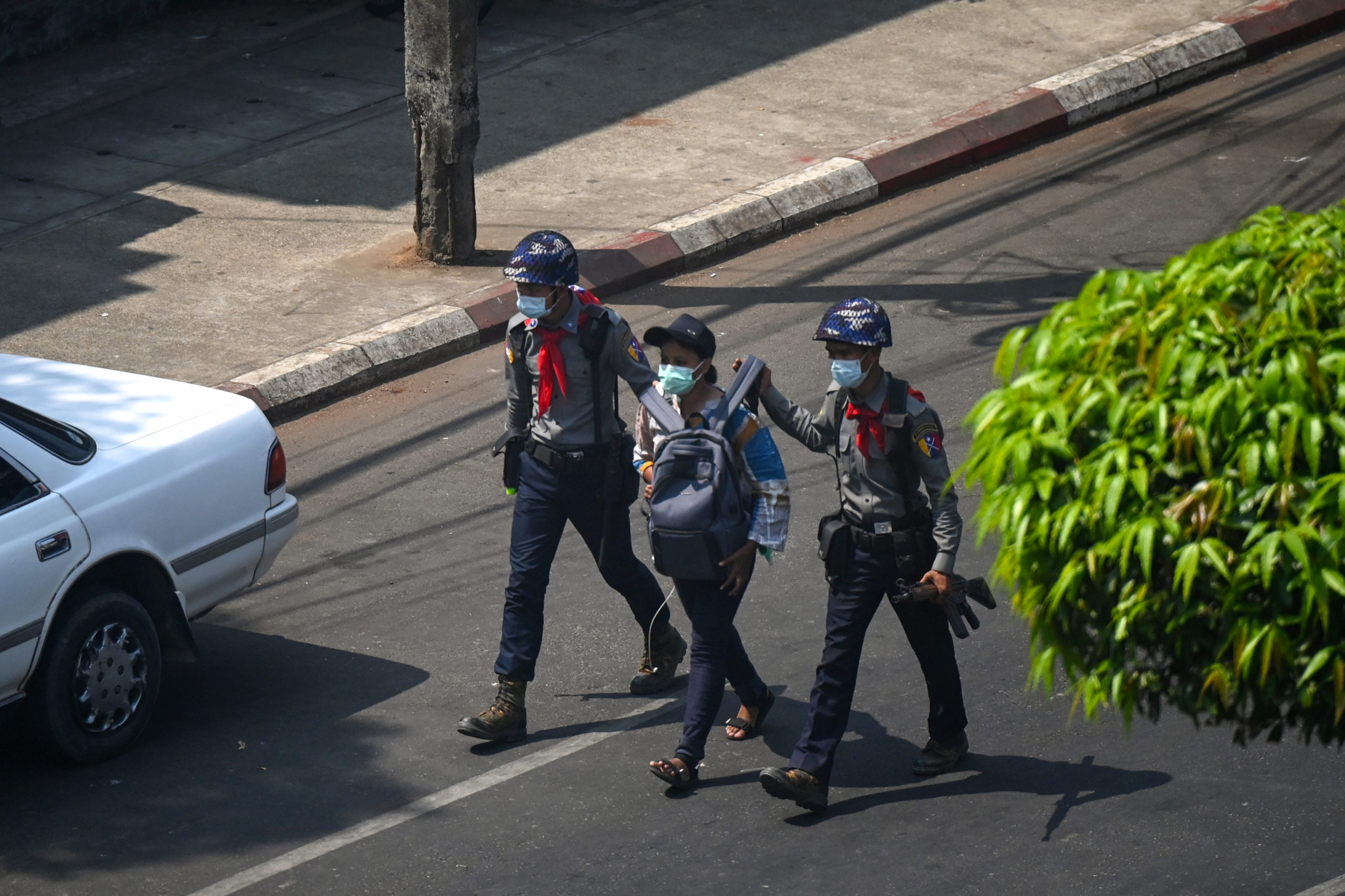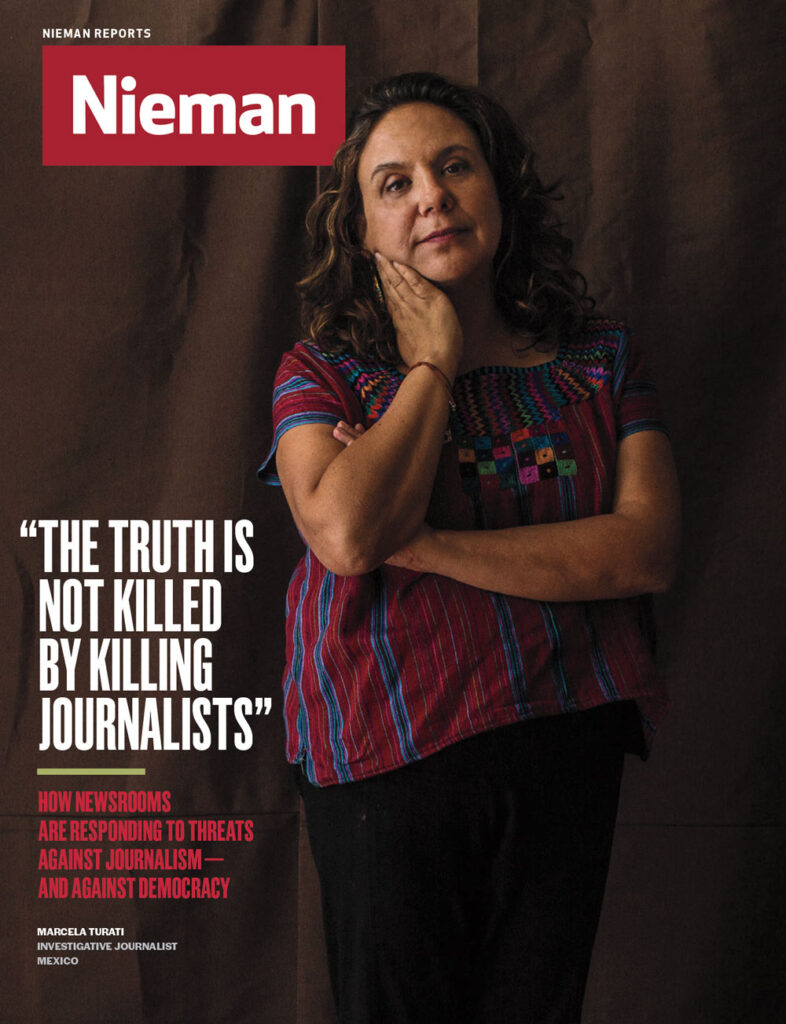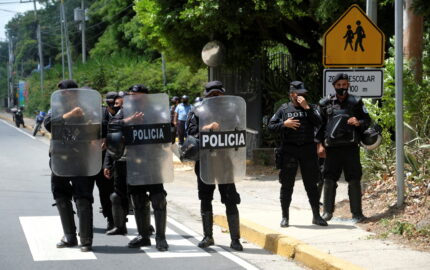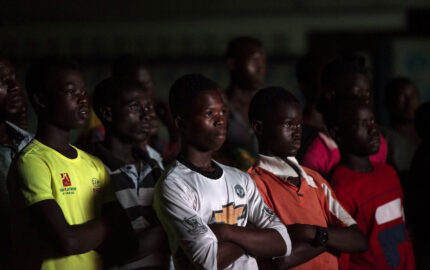On Nov. 21, 2021, my colleague at investigative news magazine Frontier Myanmar, Zar, wiped her laptop and phone of all data and packed them into a single bag with a few other belongings, then headed for Yangon International Airport. Deciding to board the plane that day, she told me recently, was among the hardest decisions she’d ever had to make. (Zar’s full name is being withheld for security concerns.)
The year prior had trained her well in the art of uprooting. For several months following Feb. 1, when the Myanmar military rolled tanks into the capital, arresting elected lawmakers, and declaring the country’s return to military rule, Zar stayed on in her trendy, central Yangon neighborhood, where most of her neighbors didn’t know she was a journalist, she said. But by August, uniformed soldiers were toting rifles up and down her street, looking for journalists and student protesters.
Zar, a multimedia reporter, glanced around her apartment: The living room was littered with notebooks, the desk covered in audio cables and recorders. Cameras and memory cards sat scattered across the table. She packed a bag and fled, first to her mother’s home in a rural village, where she edited audio stories in secret. She worried though, that in such a small town, her neighbors knew what she was doing. Few supported the new regime, but everyone was growing fearful of one another.
Zar’s experience is typical of Myanmar journalists who are determined to keep working despite the risks.
Fear of journalism — of both performing it and of getting anywhere near it — is nothing new in Myanmar. Alarmingly, it is also increasingly prevalent around the globe.
We are in the midst of a several-years-long trend of rising authoritarianism and the consequent shrinking of the space for free and independent journalism, which means it is becoming increasingly difficult for people to get accurate and reliable information around the world. In its most recent annual report on global press freedoms, Reporters Without Borders ranked Myanmar at 176, just behind China, but the trend is broader than Asia. Twenty-eight countries — a record high that includes Turkmenistan, Iran, and Eritrea — were classified as “very bad” for press freedoms. Many more saw a decrease in access to reliable information.
A 2006 Nieman Reports article on Myanmar noted at the time that the military government was “tracking down people who give information to international media” for persecution. For generations, the military forced its people into a sort of international solitary confinement, creating a black hole of despotism where little information ever came in or went out. Around 2011, however, the military slowly began a process of democratizing the country, holding internationally credible elections, sharing power with the civilian leaders thereby elected, reforming media censorship laws, and inviting foreign journalists in.
This progress was swiftly erased on Feb. 1, 2021; since then, the junta has murdered thousands of civilians in the targeted killing of its critics and in indiscriminate aerial and arson attacks on entire villages. More than 100 journalists have been arrested, including this writer, and 60 remain in custody, according to Reporters Without Borders. One was tortured to death. The room Zar slept in at her mother’s had iron bars over the windows, but her mother removed them when Zar arrived, so she could slip out quickly if police came. “I had a plan to run to the monastery,” she told me. “I was always ready to run.”
Before that ever happened, local administrators warned her that military police had already begun inquiring about a journalist in town. Zar packed her bag again and went to her father’s. There she recorded her podcast, about human rights in Myanmar, in a guest room atop a motorbike repair shop, waiting until all customers had left to make any noise.
She filed to the Yangon newsroom of Frontier Myanmar, at a friend’s who had internet. She would cue up a movie and pretend to watch until her friend left the room, then upload the files. The internet worked about 30 percent of the time, she said.
In tandem with its violence, the junta has also launched a barrage of ham-fisted legal and technical attacks to try to silence reporting, including instituting blanket internet cuts that have made basic, daily transactions nearly impossible, but also stripping the country’s leading news outlets of their publishing licenses and banning the use of words like “coup” and “junta.” Increasingly, however, they’ve been struggling just to keep the lights on. In October, it became clear that as much of our newsroom as possible should get out of the country. On Nov. 21, Zar packed her bag again.
“At the airport, I thought: I really don’t want to leave. My friends are all here, and I don’t know when I’ll come back,” she said. “I really wanted to cry.”
Some six months prior, on May 24, I had also packed a bag and headed for the Yangon airport. It’s widely known that the junta keeps lists of journalists and dissidents it wishes to punish, and often waits until these people try to fly out to detain them. Very few foreign journalists ever make these lists but, as local media houses folded or fled and fixers went silent, my small circle of British, American, and Australian journalists held our breaths each time another of us departed, exchanging speculative what-if texts until receiving confirmation of a safe arrival in Bangkok or Kuala Lumpur.
Thinking I’d kept a mostly low profile as an editor rather than a bylined reporter, I assumed I had even less to worry about. Each time a friend with a bigger online presence than me safely departed, it seemed like a small confirmation of this belief. The year prior, however, I had briefly worked at an outlet that the military had since banned. This, apparently, had earned me a spot on the junta’s list, and so I never boarded that flight. Instead, for the next five and a half months, while Zar moved from home to home, I sat in a nine-foot-by-seven-foot concrete cell, or paced the small yard just outside of it, swatting at mosquitos and flicking ants from my skin, sweltering through some 175 torrid afternoons.
And yet my Americanness did still somewhat save me. I was shackled and blindfolded but never beaten or tortured — things that could not also be said for the scores of local journalists and demonstrators dropped off in the prison after me, some with fresh scars, others stumbling about catatonically. The junta figures if it can torture, expel, or execute enough reporters, it can cower the rest into silence.
When I was finally released, one week before Zar was being forced to flee her country, I was sent home. There, I was feted as a local celebrity, asked to march in parades, and offered a prestigious journalism fellowship. Among the first things I wanted when I got out of prison — a cold beer and a hot shower, time spent with loved ones — was to reconnect with my exiled newsroom. In Myanmar, when local journalists are released — if they are, indeed, released — they are more often released into exile than to home. There are usually no parades or prestigious fellowships in the strange new lands they find themselves in.
This past April, I met Zar at the home she now shares with several other journalists on the suburban outskirts of a foreign city. She showed me where she recorded the podcast, usually crouched under a table, a blanket strewn over it, and a phalanx of pillows surrounding her to muffle any background noise. She said the sound wasn’t great, but that it was the least of her problems. Back across the border, sources were afraid to speak over the phone, if they could be reached at all. Internet and electricity were constantly out.
This was among the primary complaints reporters from Myanmar voiced to me: the inability to get on-the-ground accounts, the impossibility of verification. Myanmar has descended into a worsening, nationwide civil war, with small, ad hoc bands of resistance fighters waging courageous battles against the military, followed by a rise of allegedly military-backed clandestine “hit squads” known as thway-thout-ah-pwe, or “blood drinkers.” Each side reports overwhelming victories for themselves and devastating losses for the other, leaving far-removed reporters to make sense of such impossible arithmetic.
“The threat to journalists in [Myanmar] remains a very real one, and to practice journalism inside the country — as it is meant to be practiced — requires courage,” that 2006 Nieman Reports article reads — words that sadly remain relevant. The writer is correct in highlighting the necessity of location-based reporting. But that courage is just as necessary for reporting beyond borders.
Those years spent in imposed isolation have made Myanmar poorer and less developed than its neighbors, who often discriminate against Burmese people. Reporters told me stories of being turned down from apartment after apartment, with at least one landlord saying outright they won’t rent to Burmese people; of being singled out for extra screening at government offices when renewing or applying for visas; and of the frustrations of just trying to make daily purchases without speaking the local language.
Still, these reporters are producing phenomenal journalism, exposing the authoritarians’ crimes to the world and to local populations, who continue finding ways to connect to the internet and the world outside. By checking the junta’s number of reported Covid-19 deaths against numbers from cemeteries and crematoriums in Yangon, Frontier was able to show that third wave of the pandemic likely killed more than 10 times as many people as the junta officially recorded. When a peer-reviewed medical journal published a letter to the editor in March on the Myanmar government’s “timely containment measures” citing government figures, Frontier was able to call out the flawed data that the so-called “study” was based on — and expose the fact that all of its authors are military employees. Frontier has also exposed state-backed doxxing and disinformation campaigns on Facebook, which remains the only portal to the internet for much of the country.
Even as the junta attempts to block that and other sites from within the country, the residents of Myanmar evaded the blockades with VPNs and other digital tools. Frontier still sees high levels of engagement from in-country users, but since switching to a digital-only format in the wake of the coup, a huge portion of our online readers are regularly opening the newsletter and visiting the website from the power centers of the West.
Yet the sustainability of all of this is precarious. When Zar packed her bag, she thought she’d only be gone a year. “I thought: one year, and we will win,” she said, referring to the many groups still fighting a return to military rule. “Now, I think it will be longer.”
If she does return, she said she’ll have to go by land, illegally — probably through the territory of armed resistance fighters. That may not be much of a deterrent; she’s eager to return to Myanmar and stay. “I really miss my country,” she said. “I want to go back home.”
Danny Fenster, editor-at-large for Frontier Myanmar, an investigative news magazine, was imprisoned by Myanmar’s junta for nearly six months in 2021 for his reporting on military-linked businesses. He received the National Press Club’s John Aubuchon Press Freedom Award, which recognizes journalists “who bravely push to disclose the truth in trying circumstances.”



